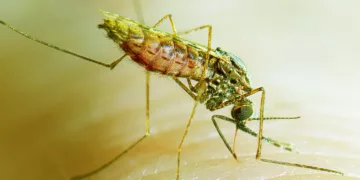Despite Nigeria’s robust pharmaceutical landscape, boasting over 150 registered manufacturers, challenges persist.
Manufacturing vaccines, for instance, remains complex and underdeveloped, even though Nigeria had a thriving vaccine production system as far back as the 1940s, which shut down for upgrades in 1992 and never fully resumed.
However, the federal government has reaffirmed its commitment to strengthening the country’s health sector through local production of medicines, vaccines, and medical devices.
Speaking during the National and Regional Harmonization Conference 2025, themed “Contextualizing the Presidential Initiative to Achieve Local Production of Medicines and Vaccines in Nigeria” recently in Abuja, the Director of Food and Drug Services at the Federal Ministry of Health and Social Welfare, Pharm. Olubunmi Aribeana, emphasised that the initiative was crucial to achieving medicine security and safeguarding national health interests.
She said the conference brought together stakeholders from across the health sector to discuss ways of unlocking Nigeria’s healthcare value chain.
Represented by Mrs Olufowobi-Yusuf Adeola, the Director highlighted how the COVID-19 pandemic exposed the vulnerabilities of countries that heavily rely on imported pharmaceuticals. “The pandemic taught Low-Middle-Income Countries like ours a hard lesson. Even when funds were available, access to critical vaccines and medical devices was restricted. We cannot afford to be caught flat-footed again,” she said.
She noted that initiatives such as the creation of the Presidential Initiative on Unlocking the Healthcare Value Chain, and the recent Pharma Sector Presidential Executive Order, demonstrate the government’s seriousness about building local capacity in pharmaceuticals and vaccines.
She also pointed to the federal government’s partnership with May & Baker Nigeria PLC, which led to the establishment of Biovaccines Nigeria Limited (BVNL), as a major step towards achieving vaccine self-sufficiency.
“Local manufacturing presents opportunities for job creation, economic growth, international trade, and national security. It is critical that Nigeria strategically positions itself to benefit from the African Continental Free Trade Area,” she said.
She assured stakeholders of the Department of Food and Drug Services’ commitment to supporting investments and creating an enabling environment for growth in the pharmaceutical sector.
The Director encouraged participants to leverage existing policies, such as the National Drug Policy and the Nigeria Vaccines Policy, during their deliberations and to focus on identifying gaps, forging partnerships, and proposing actionable steps to enhance local production.
Addressing concerns about trust in the country’s upcoming vaccine production efforts, Dr. Chinele Okonkwo, a pharmacist, noted that stringent regulatory processes and clinical trials are already in place to guarantee safety and efficacy.
“There’s no shortcut. Before any vaccine or drug gets to clinical trials, agencies like NAFDAC must approve its safety and effectiveness,” Okonkwo said.
She emphasised that Nigerian pharmaceutical companies, particularly those in Lagos, meet global standards and should be trusted more than some imported medicines, particularly because vaccine cold chain management within Nigeria could better guarantee potency.
The Project Coordinator at the National Institute for Pharmaceutical Research and Development (NIPRID), Dr. Olajide Adebola, stated that the conference aimed to consolidate efforts among stakeholders at national and regional levels to advance medicine and vaccine security.
“The government’s Presidential Initiative on Unlocking the Healthcare Value Chain (PIVAC) is creating enabling policies such as tax waivers and removal of import duties on pharmaceutical consumables,” Adebola said.
He assured that the current administration is building on structures set by previous governments, including the establishment of a National Vaccine Research and Development Plan (2024–2034), targeting the creation of at least three human vaccine factories.
As Nigeria marked World Malaria Day, concerns about the high cost of malaria drugs were raised. Adebola noted that work is ongoing to lower medicine prices through increased local manufacturing, elimination of multiple taxation, and encouragement of local production of active pharmaceutical ingredients (APIs).
“In the near future, Nigerians should begin to see reduced medicine costs,” he assured.
However, he acknowledged persistent challenges including power shortages, water infrastructure, and workforce gaps, which inflate production costs and medicine prices.
Despite the challenges, he expressed optimism. “We are not where we used to be, there is hope. Government commitment and stakeholder collaboration are setting Nigeria on the right path to medicine security and health sovereignty.”











